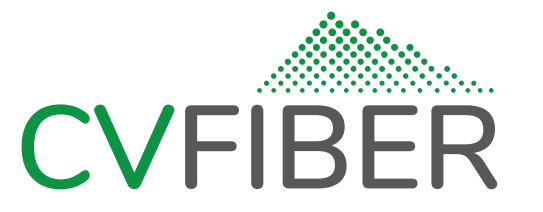CVFiber Looks to Build-Out of Fast Fiber Network
FOR IMMEDIATE RELEASE: July 20, 2020
Contact: Jeremy Hansen, 802-279-6054 or [email protected]
Having received approval from the state of its feasibility study on improving Internet connectivity in Central Vermont, CVFiber is moving forward aggressively in building partnerships and seeking funds to reach its goal of providing fast Internet access throughout the underserved areas of its 20 member towns.
We have submitted an application for a major grant and are reviewing the best way to tap recently appropriated state COVID-19 funds. Additionally, the CVFiber Governing Board has approved joining a consortium to bid on federal broadband incentives to build out fast networks. We are also considering applying for loans up to $4 million from the Vermont Economic Development Authority (VEDA). Finally, two new towns, Duxbury and Washington, have joined the previous 18 towns that make up our communications union district.
“Our first year was spent on building the organization, the second on strategizing and planning, and this year we’re focused on getting started on building our network,” said Jeremy Hansen, chair of the CVFiber board.
“A key boost for us was receiving grants last year from the Vermont Department of Public Service, the Vermont Agency of Commerce and Community Development, and USDA Rural Development to do a feasibility study of whether it was possible—from an economic and logistics standpoint—to provide truly fast Internet access to rural areas in Central Vermont that currently aren’t served. These are folks who have been left behind, which has had a very big impact on the opportunities available to them. The COVID pandemic has really highlighted the disadvantages they face,” Hansen said.
Interisle, a consulting company that worked on building fast broadband through rural, underserved towns in western Massachusetts, was hired to study what such a system might look like in central Vermont. The feasibility study they delivered showed such a project was indeed doable, Hansen said, and the organization’s board then received additional grant funds to begin planning how the network could be constructed.
“We were approaching the take-off stage,” Hansen said, “and then COVID hit. That made everyone realize even more the importance of robust Internet access. The Legislature had been working on more support for broadband projects, but the demands for reliable, fast connections for children needing to connect to online learning, for people working out of their homes, and for businesses struggling to survive showed the need was urgent. Lawmakers shifted into overdrive and provided important funds that communications union districts like ours can tap.”
Whether small, nonprofit, publicly-operated start-ups like CVFiber can obtain significant federal dollars through the Rural Digital Opportunity Fund (RDOF) will be determined this fall through auctions in which those who bid the lowest on building connections to underserved areas win grants. Nationally, a total of $20 billion is on the block. Competing with nonprofits like CVFiber will be private, for-profit companies that may already operate networks, generally in more populous areas. Among those joining CVFiber in bidding through the consortium headed by the National Rural Telecommunications Cooperative (NRT) will be Washington Electric Coop, Vermont Electric Coop, ECFiber, and Pear Networks.
CVFiber’s goal is ensuring everyone in its 20-town area has access to Internet speeds of at least 100 Mbps (megabits per second) for both uploading and downloading data, far exceeding the federal standard for “high-speed broadband” of 25 Mbps for downloads and 3 Mbps for uploads.
“Providing access over fiber-optic cable, which is what we plan to use for our network, is what makes the difference between ‘high-speed’ and truly ‘fast’ Internet,” said Hansen. “’High-speed’ isn’t good enough anymore. ‘Fast’, in both uploading and downloading data, is what people need, and our goal is to make sure everyone gets it.”
Towns in the CVFiber Communications Union District are Barre City, Barre Town, Berlin, Cabot, Calais, Duxbury, East Montpelier, Marshfield, Middlesex, Montpelier, Moretown, Northfield, Orange, Plainfield, Roxbury, Washington, Williamstown, Woodbury, and Worcester.
